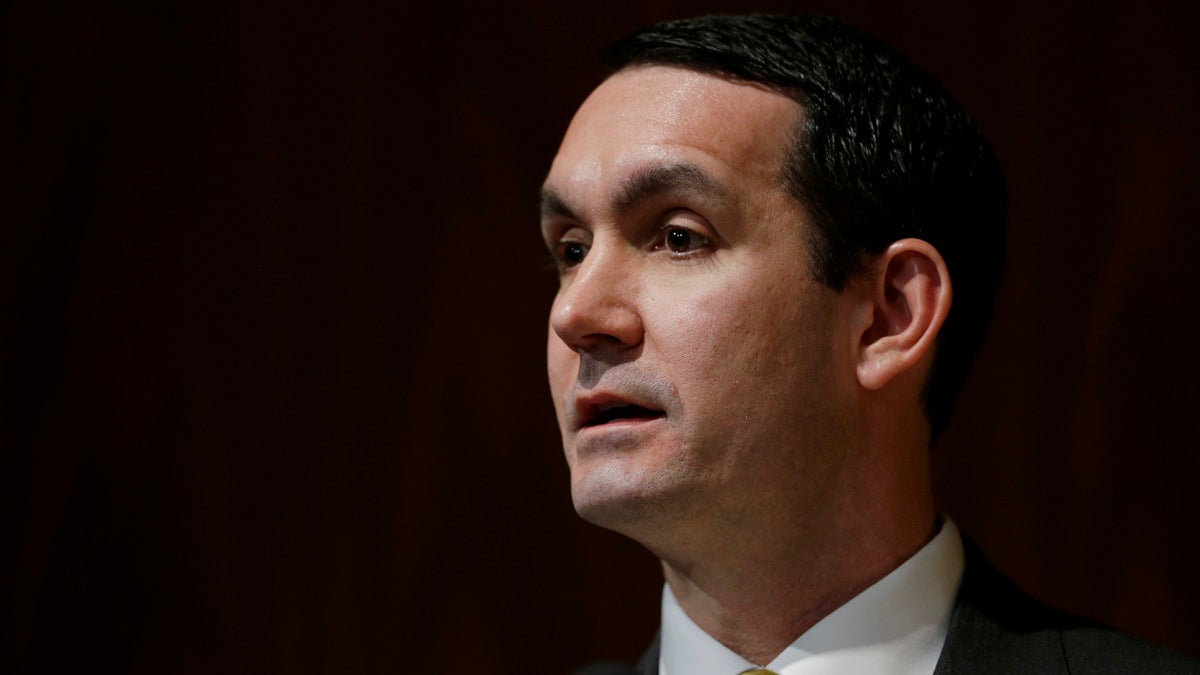Auditor: Pa. child-abuse hotline plagued by problems in 2015

Auditor General Eugene DePasquale says 42
Nearly 42,000 calls to Pennsylvania’s hotline for reporting suspected child abuse and neglect went unanswered last year.
State Auditor General DePasquale said his staff found tens of thousands of calls weren’t answered at ChildLine, the state’s critical child abuse hotline.
While he found fault with the Department of Human Services, which runs the service, he also pointed to the state Legislature.
In 2011, it started to require that more people receive child abuse clearances, but didn’t increase ChildLine funding, he said Tuesday.
“There should have been an anticipation with the amount of people now required to go through these checks, that it would have led to an increased volume of calls, and for some reason, that wasn’t anticipated,” he said. “If you’re going to expand it from what it was in 2011 to what it is now, there’s going to be a lot more work that’s required and there was no recognition that that work was going to lead to more calls and more submissions.”
For his part, Department of Human Services Secretary Ted Dallas said ChildLine added more than 30 staff members to try to keep up.
“Changes in the law exacerbated that issue,” he said. “I think a lot of what you’re seeing there is those new laws. As we went through it, we adapted what we did, we hired more staff, we changed some of our policies, and now we’re starting to get to a place that’s more acceptable.”
Dallas said the staff is answering more calls, and he’s hoping lawmakers approve an additional $1.8 million to hire more help.
“There are IT changes that were made, there were staffing changes we made, and those began immediately. Obviously, if you’re going to go from 45 to 79 people, you can’t hire them in one day. It takes a little while to do that,” he said.
Dallas said the agency aims to reduce unanswered ChildLine calls to 4 percent, which would equal about 7,500 calls in 2015.
•
Gov. Tom Wolf’s spokesman Jeff Sheridan released this statement:
“When Gov. Wolf took office, his administration inherited a ChildLine program that was not being implemented properly, and was an absolute mess.
Despite the law mandating that calls be responded to in 14 days, due to the high volume of calls, the total number of days reached as high as 26 days. The governor and Human Services Secretary Ted Dallas immediately went to work to fix the problem, and as a result of changes made, including new leadership to oversee the program and additional staffing and resources provided, the Wolf Administration:
Reduced the number of response days from 26 to two.
Increased the number of calls responded to in a timely manner from 47 percent to 100 percent.
Reduced the number of abandoned calls from 43 percent to 12 percent.
The administration is currently working to reduce this percentage to 4 percent, but additional funding is necessary.
The Wolf administration began fixing the implementation of the program more than a year before the auditor general began his audit, and while many strides have been made, there is more work to do.
We are committed to continuing our work with the legislature to implement the law and to finding ways to direct additional resources to ChildLine, and we are pleased the auditor general is now involved in the process and has highlighted the need for more funding and additional staffing.”
•
Brian Bornman, executive director of Pennsylvania Children and Youth Agencies, an affiliate of the County Commissioners Association of Pennsylvania, also released a statement:
“While we applaud the Department of Human Services (DHS) for regularly increasing staffing to ChildLine, we would be remiss if we did not note that the continuing stagnation in state funding has prevented counties from doing the same.
Although DHS received supplemental appropriations to increase their staff at ChildLine as a result of nearly 30 new child welfare statutes enacted in 2014, counties were not permitted to reopen their child welfare budgets to add needed staff, even though most counties have seen a 35 to 50 percent increase in the number of investigations they must complete. Some counties saw sustained increases in 2015 of more than 100 percent compared to 2014 investigations. As a priority for 2016, counties are seeking an increase in the financial match for child welfare staff and adequate funding for human services.
“Too often, child welfare mandates are placed on the counties without any means to pay for them. It is imperative that that changes to the laws affecting child welfare be accompanied with supplemental appropriations for all who must deal with the impacts, at the time the mandates go into effect. The timing for implementing mandates must also be more mindful of the child welfare budgeting cycle so the counties who actually do the work can assure adequate staffing to protect the children of the Commonwealth.”
WHYY is your source for fact-based, in-depth journalism and information. As a nonprofit organization, we rely on financial support from readers like you. Please give today.

